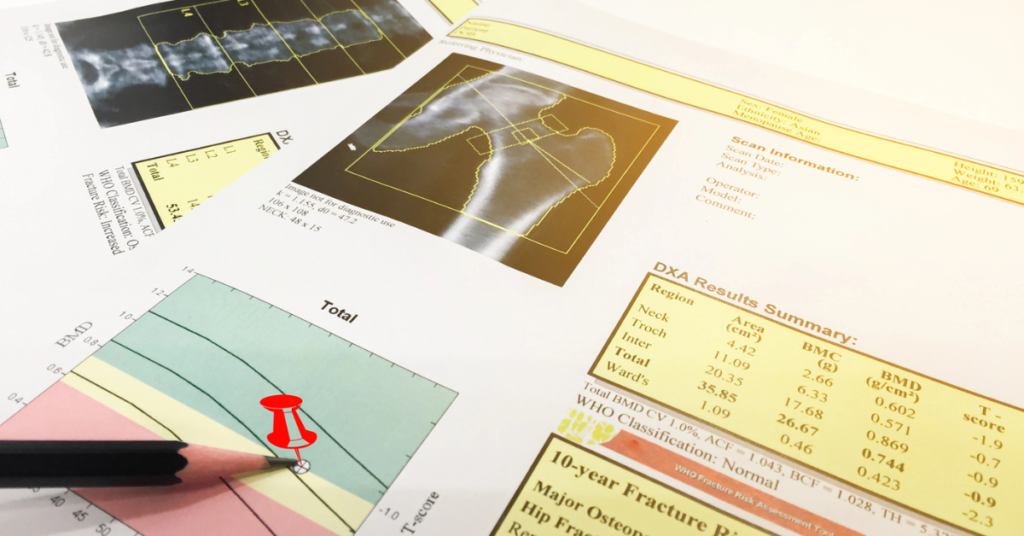At DXA Body Composition NC, we understand the critical role that accurate body composition analysis plays in sports medicine. For athletes and sports professionals in Durham, NC, and the surrounding areas, DEXA (Dual-Energy X-ray Absorptiometry) scans have become an invaluable tool for optimizing performance, preventing injuries, and guiding training programs. Let’s explore how DEXA technology is revolutionizing sports medicine and why it’s essential for athletes at all levels.
What is DEXA and How Does it Work?
DEXA is a diagnostic tool that uses low-dose X-ray technology to produce detailed images of the body’s internal composition. It’s considered the gold standard for measuring bone mineral density and body composition. Here’s how it works:
- The DEXA scanner emits two low-energy X-ray beams.
- These beams pass through different types of tissue in the body.
- The machine measures how much each beam is absorbed by bones, muscles, and fat.
- This data is then used to calculate precise measurements of bone density, lean muscle mass, and fat distribution.
The entire process is quick, painless, and non-invasive, typically taking only about 10-20 minutes.
DEXA’s Impact on Sports Medicine
Bone Health Assessment
For athletes, especially those in high-impact sports, bone health is crucial. DEXA scans provide detailed information about bone mineral density, which is essential for:
- Assessing the risk of stress fractures
- Monitoring the effects of intense training on bone strength
- Identifying athletes who may be at risk for osteoporosis or other bone-related issues
This information allows sports medicine professionals to develop targeted strategies to maintain or improve bone health, reducing the risk of injuries and prolonging athletic careers.
Body Composition Analysis
Understanding an athlete’s body composition is key to optimizing performance. DEXA scans offer several advantages in this area:
- Precision: DEXA can measure small changes in body composition that might not be detectable with other methods.
- Regional Analysis: The scan provides data on fat and muscle distribution in different body regions, allowing for targeted training and nutrition plans.
- Muscle Symmetry: By identifying muscle imbalances, DEXA helps prevent injuries and improve overall performance.
Tracking Progress and Recovery
For athletes recovering from injuries or undergoing intensive training programs, DEXA scans provide objective data to:
- Monitor changes in muscle mass during rehabilitation
- Assess the effectiveness of training programs
- Guide nutrition plans to support recovery and performance goals
This data-driven approach allows for more personalized and effective training and recovery strategies.
Real-World Applications in Sports Medicine
At DXA Body Composition NC, we’ve seen firsthand how DEXA scans benefit athletes across various sports. Here are some practical applications:
- Football Players: DEXA scans help offensive linemen maintain optimal body composition, balancing strength and agility.
- Distance Runners: By monitoring bone density, we can help prevent stress fractures common in endurance athletes.
- Gymnasts: Tracking lean muscle mass and fat distribution aids in maintaining the ideal body composition for performance and aesthetics.
- Weightlifters: DEXA scans help monitor muscle symmetry and growth, ensuring balanced strength development.
The Importance of Regular DEXA Scans
For athletes and sports medicine professionals, regular DEXA scans provide invaluable insights:
- Baseline Measurements: Establishing a baseline allows for accurate tracking of changes over time.
- Seasonal Monitoring: Assessing body composition changes throughout the training and competition seasons helps optimize performance.
- Injury Prevention: Regular scans can identify potential issues before they lead to injuries.
- Performance Optimization: By fine-tuning body composition, athletes can achieve peak performance in their specific sports.
DEXA vs. Other Body Composition Methods
While there are various methods for assessing body composition, DEXA stands out for several reasons:
- Accuracy: DEXA is considered the gold standard, providing more precise measurements than methods like skinfold calipers or bioelectrical impedance.
- Comprehensive Data: Unlike other methods, DEXA provides detailed information on bone density, lean mass, and fat distribution.
- Non-Invasive: The scan is quick and comfortable, requiring no special preparation from the athlete.
- Reproducibility: DEXA scans offer consistent results, making them ideal for tracking changes over time.
How Often Should Athletes Get DEXA Scans?
The frequency of DEXA scans depends on individual needs and goals. However, here are some general guidelines:
- Pre-season: Establish a baseline before the start of training.
- Mid-season: Monitor changes and make necessary adjustments.
- Post-season: Assess the impact of the season on body composition.
- During Rehabilitation: Track progress during injury recovery.
For most athletes, 2-4 scans per year provide sufficient data to guide training and nutrition plans effectively.
The Role of DEXA in Injury Prevention
One of the most significant benefits of DEXA scans in sports medicine is injury prevention. By identifying muscle imbalances, bone density issues, and changes in body composition, sports medicine professionals can:
- Develop targeted strength training programs
- Adjust nutrition plans to support bone health
- Modify training loads to prevent overuse injuries
- Identify athletes at higher risk for certain types of injuries
This proactive approach can significantly reduce the risk of injuries and improve overall athletic performance.
The Future of DEXA in Sports Medicine
As technology advances, the role of DEXA in sports medicine continues to expand. Some exciting developments include:
- 3D Imaging: Combining DEXA with 3D imaging technologies for even more detailed body composition analysis
- AI Integration: Using artificial intelligence to analyze DEXA data and predict injury risks
- Portable DEXA Devices: Development of more portable DEXA scanners for easier use in various sports settings
- Longitudinal Studies: Large-scale studies using DEXA data to better understand long-term effects of different sports on body composition and bone health
These advancements promise to make DEXA an even more powerful tool in sports medicine, further enhancing athlete performance and health.

Why Choose DXA Body Composition NC?
At DXA Body Composition NC, we’re committed to providing top-quality DEXA scanning services to athletes and sports medicine professionals in Durham, NC. Here’s why you should choose us:
- State-of-the-Art Equipment: We use the latest DEXA technology for the most accurate results.
- Experienced Technicians: Our team is highly trained in performing and interpreting DEXA scans for athletes.
- Comprehensive Analysis: We provide detailed reports and expert interpretation of your scan results.
- Personalized Approach: We understand that each athlete’s needs are unique and tailor our services accordingly.
- Convenient Location: Our facility in Durham is easily accessible for athletes throughout the region.
Take the Next Step in Your Athletic Journey
Understanding your body composition is crucial for achieving peak performance and maintaining long-term health as an athlete. DEXA scans provide the most accurate and comprehensive data available, allowing you and your sports medicine team to make informed decisions about training, nutrition, and injury prevention.
Don’t leave your athletic performance to chance. Contact DXA Body Composition NC today to schedule your DEXA scan and take the first step towards optimizing your performance and health. Our team is ready to help you unlock your full athletic potential through the power of precise body composition analysis.
Remember, whether you’re a professional athlete, a weekend warrior, or somewhere in between, knowing your body composition can be the key to reaching your goals and staying healthy. Let DXA Body Composition NC be your partner in achieving athletic excellence.
